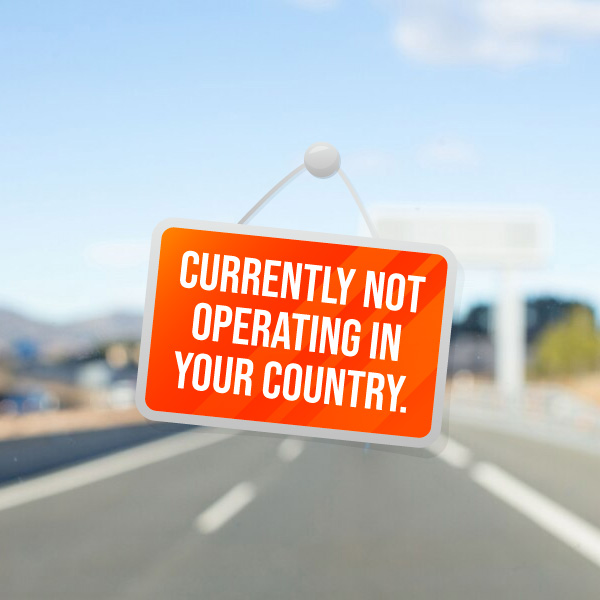You’re standing on a bustling street in Karachi, trying to hail a traditional taxi amidst the chaos. Suddenly, you pull out your smartphone, open a ride-sharing app, and a car arrives within minutes to pick you up. If we look at the past just a decade back, this would be merely an imagination. This scenario has become increasingly common in Pakistan, where ride-sharing services have revolutionized the transportation industry. A ride-sharing app is a service that connects drivers and passengers for a one-way commute on short notice. Many people also refer to it as online taxi services in Pakistan. In this fast-changing world, where every single product and service is improving. The conventional way of commuting is also changing. Traditional taxi services are no longer feasible as they are not connected to digital infrastructure. Cheap rides also make these apps different from the other options available.
This blog post will delve into the future of ride-sharing in Pakistan. Moreover, it will explore the latest trends and innovations shaping the landscape.
Rise Of Ridesharing Apps
The rise of ridesharing apps in Pakistan has revolutionized how people commute and navigate cities. With the introduction of platforms like Careem and Uber, the traditional taxi-hailing experience has been transformed into a convenient and hassle-free process. These apps have simplified how users book rides and offer a more secure and transparent transportation option. Through integrating GPS technology, cashless payments, and real-time tracking, ridesharing apps have gained immense popularity, catering to the evolving needs of urban dwellers in Pakistan. With the increasing smartphone penetration and the convenience they provide, ridesharing apps have become an indispensable part of the urban mobility landscape in the country. Carpool service in Karachi has also evolved in competition with rideshare apps due to increased fares in peak times.
Current Position Of Ridesharing In Pakistan
Pakistan’s ride-sharing industry has experienced a remarkable surge in recent years, with major players like Careem and Uber dominating the market. These companies have capitalized on the country’s growing smartphone penetration and the need for convenient and reliable transportation options. Today, ride-sharing has become integral to urban mobility, benefiting customers and drivers. Find a ride near me is the most commonly searched term on the internet.
Ride-sharing platforms have simplified the process of getting a ride, eliminating the hassles of negotiating fares and dealing with cash transactions. Customers can request rides with a few taps on their smartphones, track their drivers in real-time, and enjoy the convenience of cashless payments. Additionally, drivers have found new income-generation opportunities through ride-sharing, empowering them economically.
Technological Advancements and Innovations
To stay competitive and improve the overall user experience, ride-sharing companies in Pakistan embrace cutting-edge technologies and innovative solutions.
Integration of AI and Machine Learning
Artificial Intelligence (AI) and Machine Learning (ML) algorithms are revolutionizing the ride-sharing industry. These technologies analyze vast amounts of data to optimize routes, predict demand patterns, and reduce customer and driver waiting times. AI-powered platforms can offer personalized recommendations and seamless experiences by continuously learning from user preferences and historical data.
In response to the growing concerns about climate change and pollution, ride-sharing companies in Pakistan are increasingly adopting Electric Vehicles (EVs) in their fleets. EVs are eco-friendly and offer cost advantages in fuel efficiency and reduced maintenance. By transitioning to EVs, ride-sharing platforms actively contribute to a greener future and address environmental challenges.
Electric Vehicles (EVs)
In response to the growing concerns about climate change and pollution, ride-sharing companies in Pakistan are increasingly adopting Electric Vehicles (EVs) in their fleets. EVs are eco-friendly and offer cost advantages in fuel efficiency and reduced maintenance. By transitioning to EVs, ride-sharing platforms actively contribute to a greener future and address environmental challenges.
Micro-Mobility Solutions
Micro-mobility solutions such as e-scooters and bikes are gaining popularity worldwide, and Pakistan is no exception. Ride-sharing companies are expanding their services to include these options, enabling users to cover short distances conveniently and sustainably. These compact vehicles are especially suitable for crowded urban areas, reducing traffic congestion and providing a last-mile connectivity solution.
All-In-One Apps
All-in-one apps, commonly known as super apps integrating multiple services under a single platform, are transforming the ride-sharing landscape. In Pakistan, local ride-sharing companies are evolving into super apps by incorporating additional services such as food delivery, grocery delivery, and digital payments. This consolidation of services offers users a seamless and comprehensive experience, enhancing convenience and efficiency.
The rise of super apps is reshaping the ride-sharing industry and impacting various sectors of the economy. By diversifying their offerings, ride-sharing platforms are becoming more than just transportation providers. They are becoming lifestyle platforms that cater to a wide range of user needs.
Wrapping Up
The future of ride-sharing in Pakistan is bright, fueled by emerging trends and innovative technologies. The integration of AI and machine learning, the adoption of electric vehicles, the rise of micro-mobility solutions, the emergence of super apps, and the potential of autonomous vehicles all contribute to a transformation in the transportation industry.







Leave A Comment